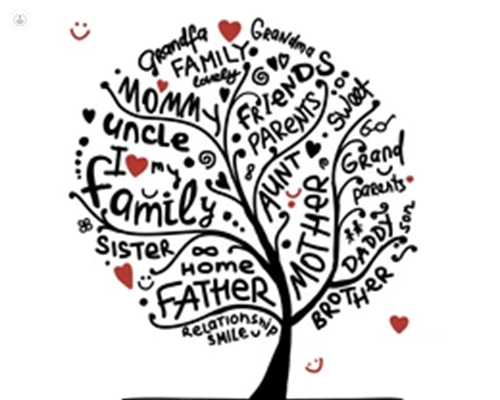What should I do if I have a family history of breast cancer?
Autore:In this article below, revered consultant medical and clinical oncologist, Dr Shiroma De Silva-Minor, offers expert pieces of advice to patients who have a family history of breast cancer.

What should I do if I have a family history of breast cancer?
If you have a family history of breast cancer, as a breast oncologist, I recommend taking proactive steps to manage your risk. Here are some important considerations:
- Understand your risk: It is important to know your family history of cancers and understand your personal risk. If you have a first-degree relative (mother, sister, daughter) who has been diagnosed with breast cancer, your risk is higher than the general population. Consider other cancers that can also be related to genetic mutations, such as ovarian cancer (including fallopian tube and primary peritoneal cancers), male breast cancer, and to a lesser extent other cancers such as prostate, pancreatic cancer, and melanoma. Remember, cancer genes can affect both men and women so it is important to consider the risk for male relatives as well.
- Early detection: Early detection is key to successful treatment of breast cancer. It is important to start screening mammograms earlier and more frequently than the recommended age of 50 for the general population. It may be appropriate for women with a family history of breast cancer to begin mammogram screening 10 years or more before standard screening age, depending on the level of risk. Find out more information on familial breast cancer. (www.nice.org.uk – will be hyperlinked in article)
- Genetic testing: Genetic testing can help determine if you carry an inherited gene mutation that increases your risk of breast cancer. If you test positive for a gene mutation, you can take steps to manage your risk, such as increased surveillance, chemoprevention, or risk reductive surgery.
- Lifestyle changes: While family history cannot be changed, making lifestyle changes can help lower your risk of breast cancer. This includes maintaining a healthy weight (BMI under 25), healthy eating (limiting processed foods and refined sugars and carbohydrates), exercising regularly, limiting alcohol intake, and avoiding tobacco.
- Consult with a specialist: If you have a family history of breast cancer, consult a breast specialist to assess your risk, whether genetic testing should be under taken and for personalised risk-management strategies.
It is important to remember that only five to 10 per cent of all breast cancers are hereditary, and even if a genetic mutation is identified, it does not mean that cancer is an inevitability. Knowledge is power, allows you options, and arms you with the information you need to make the right decisions for you and your family.
If you’d like to make an appointment today with Dr Shiroma De Silva-Minor, head over to her Top Doctors profile to do just that.


